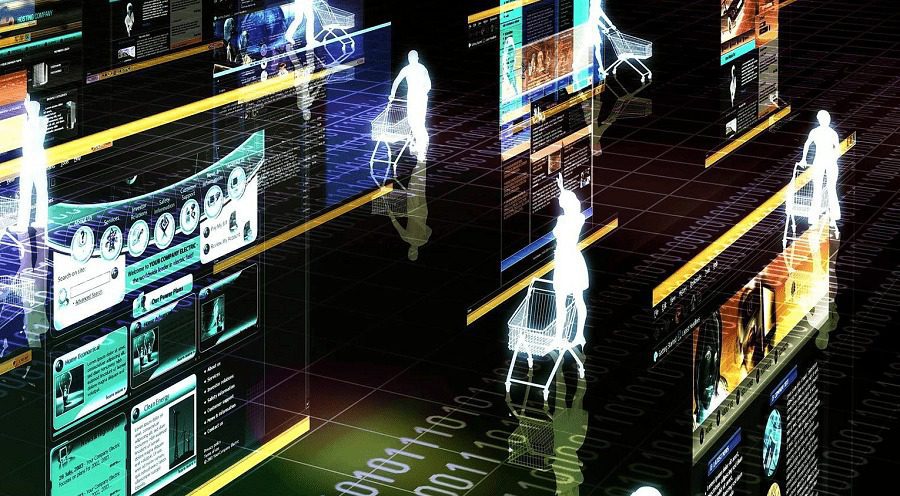If the COVID-19 crisis has taught retailers anything, it’s that even the best-laid plans and the most solid projections may need to be radically rethought — if not junked altogether. That fact makes it even tougher to predict which skills and qualifications will be most essential for the industry’s leaders in the future.
For example, if the online shopping surge generated by the coronavirus leads to long-term gains for e-Commerce versus brick-and-mortar stores, by 2025 retail executives could be operating in a far more digitally oriented landscape than anyone could have expected. Additionally, if recovery from the COVID-19 economic slowdown is weak, many individual companies — and perhaps the entire industry — will face the challenge of operating in “survival mode” for a prolonged period.
In a number of areas, however, the coronavirus has simply accelerated trends that were already affecting both consumers and retailers. “We predicted back in 2018 that by 2025, 70% of U.S. consumers would be ordering groceries online on a monthly basis, but we’re there today,” said Hilding Anderson, Head of Retail Strategy at Publicis Sapient in an interview with Retail TouchPoints. “The digital investments needed in grocery, apparel and big box stores have been sped up five years — and most retailers are not ready yet. That’s one reason we’re seeing digital revenues spiking, but profitability taking a massive hit — most of the [current] systems aren’t built for the volume we’re seeing.”
Even if it’s impossible to know exactly what lies ahead, a number of leadership traits and skill sets will become invaluable as the industry undergoes significant shifts. These include:
- The need for leaders to be agile learners, with the ability to quickly gather the data and insights needed to deal with fast-changing situations;
- The ability to apply critical thinking in order to overcome inevitable blind spots that can skew decision-making;
- The need to understand and respect data science and algorithms, which will play even larger roles in retail than they already do;
- The recognition that digital-first behaviors are quickly becoming the rule rather than the exception;
- Placing a priority on a brand’s purpose and ethical stance, and having those values reflected throughout the organization and its workplaces;
- An even greater emphasis on both diversity and sustainability, both important to the Gen Z consumers who will be moving into their prime spending years and entering the workforce; and
- C-level executives’ commitment to creating more empathic connections between themselves and the employees working for them, as well as the consumers purchasing their products.
Retail TouchPoints gathered insights from a range of retail industry experts on these topics:
The Need For Leaders To Be Agile Learners
“Today’s leaders need to be 1. Strategic; 2. Team-oriented; and 3. Learning agile. Previously, you could have gotten by with just the first two, but now leaders need to be learning agile as well because the world just changes so fast. The pattern recognition that likely got these leaders to where they are won’t get them, and their companies, to where they need to go in the future.”
— Chris Walton, CEO, Omni Talk and Third Haus
The Importance Of Critical Thinking Skills
“Leaders have to do a lot of decision-making around the company’s strategic direction, mergers and acquisitions, key hires, new technology, the company’s overall mission or purpose and ethical dilemmas that may come up, so a lot of skills involve how these leaders make decisions. They need to apply critical thinking and identify their high-risk blind spots, for example when they are likely to have confirmation bias. Leaders need to know when to apply both critical thinking and analytics to reduce those blind spots and overrule politics and bias. Increasingly, leaders have more data and tools available to do these things, as long as they utilize them in the right way.”
— Jim Harter, Chief Workplace Scientist, Gallup
Digital-First Becomes A Business Basic
“The next leaders need to be able to understand their consumers [who are] shopping digitally first for the entire customer journey, and figure out how [the retailer] can be there for the customer during their times of need. Consumers will see that the digital systems gaining prominence with COVID-19 are incredible time-savers, and the leading retailers are the ones that understand that these are new behaviors being trained. However, leaders also need to balance digital offerings with profitability; if the companies aren’t profitable, they won’t be in business for long.”
— Hilding Anderson, Head of Retail Strategy, Publicis Sapient
Ensuring The Brand Reflects Ethical Values
“We know already that ethical leadership will be even more important both to consumers and to employees, and that leaders will be expected to be accessible and responsive in ways that were never expected before. A key skill set that will become even more vital is the ability of a leader to create, convey and retain trust with both internal stakeholders and customers as well as other external stakeholders.”
— John Kurtz, Partner, Kearney
Ensuring Sustainability And Diversity Become Standard Practices
“Retailers can’t afford to not be thinking about sustainability, now and into the distant future. If their business models aren’t transformed around sustainability, they themselves will find it hard to survive. This encompasses everything from product design to sourcing to logistics to how they think about real estate. And what goes for sustainability also goes for diversity and inclusion, and the principle applies to ideas as well as people. [Whether diversity applies to] sexual orientation, gender, age, background or culture, it’s critical for leaders to consider these many influences. I think the wave of Gen Z’s coming into the workforce will help set expectations for diversity and inclusion. As well as being digitally native, I see them as being inclusionary from the get-go.”
— Matthew Katz, Managing Partner and Practice Lead in the Retail & Consumer Practice, SSA & Company
C-Level Executives Must Understand Consumers On A More Personal Level
“We’ve seen that for many incumbent organizations, the distance between the CEO and end users is vast — and it’s measured not in miles, but in degrees of detachment from an empathic understanding of the human experience of the organization’s customers. While retail CEOs doubtless are themselves end users of some of the products they sell, they are also, at an average age of 58, at one end of a demographic spectrum of consumers. A CEO’s commitment to understanding their customers on a personal level can help them differentiate their organizations in a world drive by supply-chained, brand-positioned, market-researched, lean-manufactured priorities that often leave surprisingly little room for personal observation and experience. The consumer has spoken and the firm has actively and deeply listened; companies that ‘get’ them will be rewarded with loyalty, and with their business.”
— Benjamin Finzi, Managing Director, Deloitte Consulting, and Co-Leader, Deloitte’s Chief Executive Program













